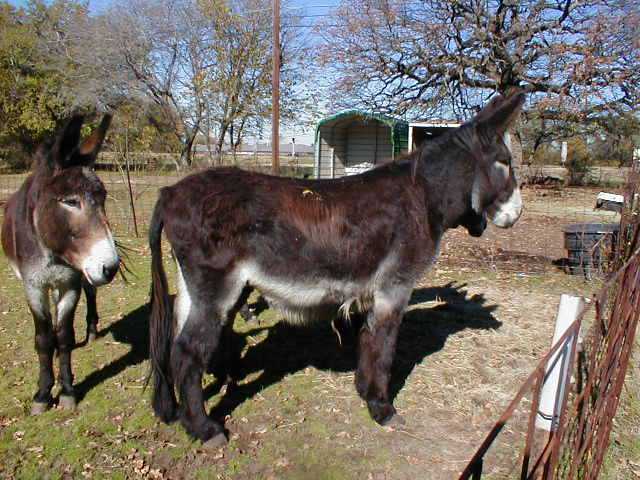
Private Sales
Many a good animal has been bought through an ad in the newspaper. As long as you know what questions to ask, you can find great deals, but if you don't know what to look for, you can also get hurt. If you don't understand about conformation, movement, and more, be sure and ask a friend who is knowledgeable about equines to go with you. Make up a list of things you are looking for (riding horse, guard donkey, pet miniature, harness mule, etc) and know what you should look for in this animal. Also, be sure you can have your own vet examine the animal if you have any questions.
Buying at Auction:
there are several reasons that an equine might be found at an auction. Of course, there are now the "exotic auctions" and "Select Sales" where more rules and precautions are taken about bringing in good stock. But if you stop in at the Every Saturday Horse auction up the road, be aware that good horses needed a new home, mediocre animals who just didn't sell after being advertised for a while, and pure junk that won't sell any other way might all come through. It's hard to do any kind of pre-purchase exam at an auction. ALWAYS insist on seeing health papers and ANY records on the animal. Watch it in the pens for as long as possible. If you can have it caught and led out, do so. You can lose your heart to that darling colt, but why is he there in the first place. Just remember caveat emptor - let the buyer beware.
All -Important Health Exams:
You should never purchase any equine (horse, pony, donkey, mule, zebra or hybrid) without making sure that it is current on all of it's health exams and vaccinations. Insist on a record of shots and worming, and a negative coggins test, preferably less than 90 days old. Have a health certificate issued by a vet (health papers are usually good only for 30 days) before you make any final deals on the animal. If necessary, bring in your own vet to do the work. Better safe than sorry!
Must-do: Understanding Quarantine:
Even though you have that negative Coggins in hand (Coggins is the test for Equine Infectious Anemia) and health papers, play it safe and isolate your new animal from the rest of your stable. This is essential in show barns or breeding operations, especially if you have youngsters and pregnant females. One brief exposure to a hidden ailment can wipe out an entire herd, and if you have just brought in a number of animals, their immune status might be unknown. Keep all vaccinations current, and quarantine new animals. TEXAS Equine laws have just been changed so that Coggins are not required for animals going to auctions!!!! THIS COULD BE A DANGER TO YOUR HERD if you do not follow through with isolation procedures - Consulting vet advice is to isolate for 10-14 days!!!!
SALES CONTRACTS - GET IT IN WRITING~~~